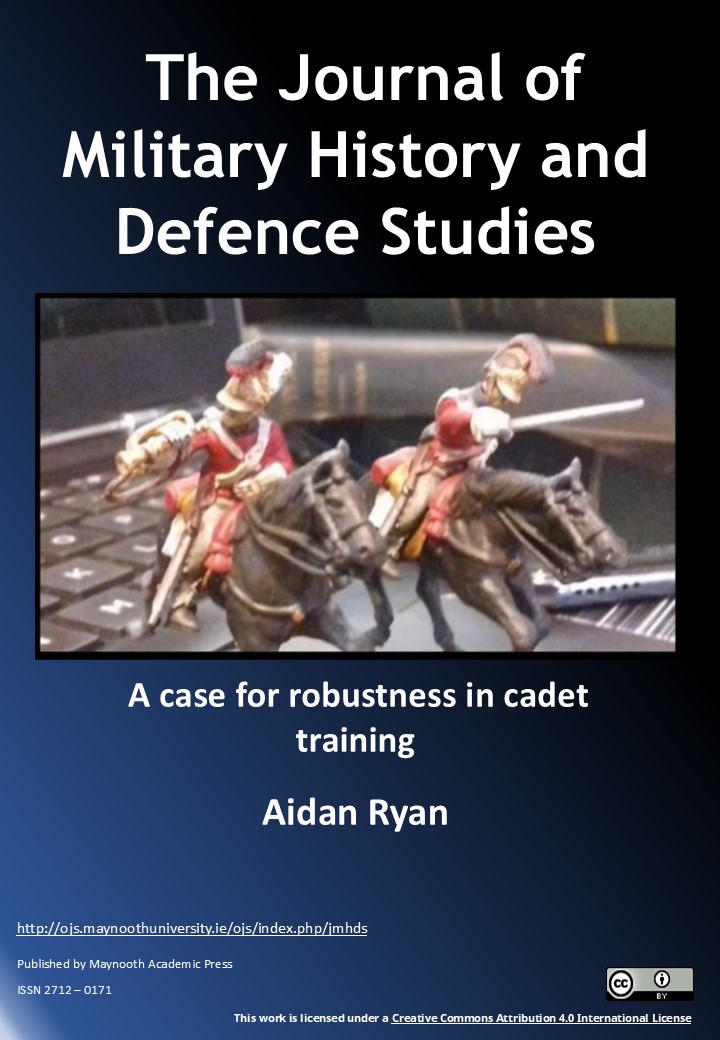A case for robustness in cadet training
Keywords:
Training, Cadet training, military education, PME, Resilience, RobustnessAbstract
This paper explores the idea of ‘robustness’ and ‘resilience’ within the context of cadet training within the Irish Defence Forces. The term ‘resilience’ is commonly used within the Defence Forces, including as a competence during cadet interviews and as metric for scoring cadets during training. However, it is unclear how members of the organisation that use the term or are subject themselves to assessment on it actually understand what it means. This paper suggests that many confuse the term with ‘robustness’ and argues that this is a more appropriate term to place at the centre of cadet training.
The findings discussed here indicate that there is conceptual overlap amongst members of the Irish Defence Forces in relation to robustness and resilience. Additionally, the findings demonstrate that the main aim of cadet training is to develop robustness, and not resilience as most commonly understood outside the organisation. Structured failures in a supervised training environment can help develop robustness, however the annual intake of cadets makes this difficult to implement correctly. Finally, the study shows that there are different levels of resilience based on one’s own experiences, underpinning the difficulty of having resilience as a core tenet of cadet training, as it is so difficult to standardise and assess. In light of this, the paper makes a number of recommendations that emphasise the importance of robustness to cadet training.


 This work is licensed under a
This work is licensed under a 
